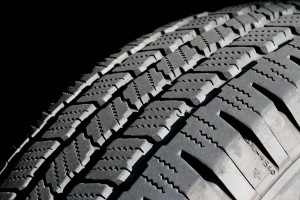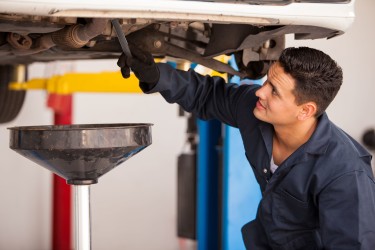Cars May Soon Be Able To Park Themselves
Car companies have been boasting about features like blindspot monitoring and active park assist for some time, but a French automaker is looking to make the next parking enhancement by fully automating the parking experience by simply hitting a button on your smartphone.
According to the French car company Valeo, technological ingenuities like ultrasonic sound-wave sensors, 360-degree cameras and laser scanners will allow cars to park themselves safely. All a driver will have to do is hit a button on his or her smart phone. The fully-automated system is called “Connected Automated Valet Parking.”
“Driving around looking for a space is not dead yet,” said Eugene Tsyrklevich, CEO of Parkopedia, an app that helps drivers find open parking spaces. “But it will be.”
Self-Parking Benefits
Unlike cars that can parallel park for the driver, the Connected Automated Valet Parking would go beyond simply turning the wheel. After a driver parks on a connection deck near the lot’s entrance, the driver would hit a button on their smartphone. The car will sync up with the parking lot and travel at a blistering 3 miles an hour towards the most efficient parking spot. The car would then back itself in, making it easier for the driver to exit the space when desired.
Valeo said the technology would have numerous benefits, including:
- More orderly parking
- Less driver frustration
- More efficient parking, squeezing more cars into parking lots
- Hazard detection that may not be visible to human drivers
While the benefits are numerous, the technology still has a long way to go before you’ll see it on a parking ramp near you. Once the technology is sharpened in the vehicle – think perfected sound-wave sensors and laser scanners – car manufacturers would have to get parking lot owners on board. This would require a hi-tech communications system and a unique radio frequency with government approval. On top of that, government regulations and legal liabilities still need to be hammered out, and currently only nine states allow driverless cars on public roads.
So while the technology may seem cool, economists and automakers say the technology is still a few years away. Automakers hope to have self-parking cars with the sensors and laser technology within the next five years, but they expect that it would be in the form of an on-board control, not a smartphone app from a designated platform. Once that technology is perfected, then automakers will turn to apps and remote valet parking.
Related source: Business Insider
-
Car Ownership Costs: A State-by-State Comparison
 Aug 14, 2014
Aug 14, 2014A new study of car ownership by researchers at Bankrate.com found that it’s cheaper to own a car in Minnesota than the national average, but just barely. The study found that Minnesota ranked 21st in terms of annual cost of ownership, coming in just $38 south of Indiana, the 25th ranked state. To determine the total […]
-
Buying Tires in Minnesota? Look No Further than Affordable Auto
 Sep 11, 2013
Sep 11, 2013Tires are an essential part of any vehicle. Much like shoes for a person, tires are the one thing between you and the ground, so it’s critical you buy the right type of tire for your car. After all, you wouldn’t play football in high heels or go for a run in sandals! That said, […]
-
The Benefits of an Engine Flush
 Aug 12, 2015
Aug 12, 2015Your engine is the lifeblood of your vehicle, so it makes sense that you should take extra care of it. Considering all the tasks your engine is asked to preform, it’s no surprise that junk and debris can build up over time in your engine system. One way to get rid of that excess build up […]




